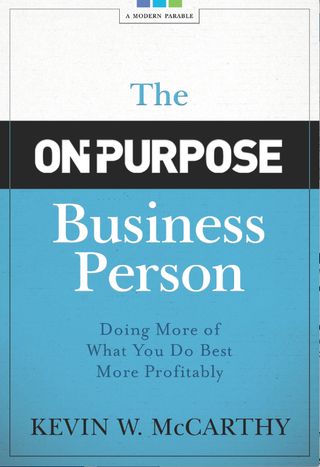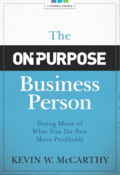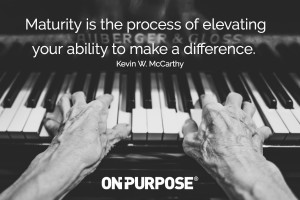Most start-up businesses begin with great intentions but are at risk of being haphazardly led with little to no regard for the founder’s spirit or original intent—even when the founder is still running the business! It is a costly loss of strategic advantage, employee and customer engagement, and business profits!
or original intent—even when the founder is still running the business! It is a costly loss of strategic advantage, employee and customer engagement, and business profits!
Some companies get it right and thrive. The Walt Disney Company’s 2-word purpose can be stated as Creating Happiness. They do a great job of living into that purpose.
Susceptibility
Most susceptible to this drifting from the founder’s spirit and intent are large organizations and institutions where work is highly fragmented across divisions and/or countries. Specialization must be paired with a sustainable corporate culture that honors and innovates upon the strengths of its past.
For example, did you know that universities and colleges such as Harvard, Yale, Princeton, and other Ivy League colleges were started as seminaries to train and equip ministers in the Christian faith? Today, these academic bastions of intellectualism and secularization are so far from their founders’ intent that their roots are obscured, if not outright ridiculed.
Candidly, most large businesses have lost a measure of their soul, and so they resort to conveying and communicating corporate values as the “fix” to the deeper loss of authenticity and congruency. When values need to be more codified and communicated than caught, then ethical business problems are predictably on the horizon.
Right behavior can be reinforced, but it can’t be legislated.
Hellegation™
Least susceptible to drift are micro-businesses or one-person entrepreneurs, freelancers, and such—provided they have clarified what matters most. Otherwise, they’re susceptible to the “chasing bright shiny objects syndrome.”
Solo owners face a different challenge, however. Founders of these SOHO (small office, home office) businesses are typically wearing far too many hats and are preoccupied with personally providing production, sales, and customer care. They’re easily caught in a vicious swirl of learning, working, and selling or overwhelmingly stuck in procrastination.
Fortunately, their passion to perform typically enables them to muscle through and deliver on a small scale basis. My term for this is Hellegation™—a condition where the solo owner has no one to delegate work to in order to be freed up to focus on more important matters to the health and well-being of the business, its customers, and society.
Years ago, I had a client who was starting an IT business. He got so lost in his software development, he soon forgot why he started a business. His intent was to help clients, employees, and his family, but he lost sight of the larger picture—becoming buried in the details. His strategic confusion produced a bewildering business design supported by a confused business infrastructure.
In my client’s case, lines of code were the means for creating value and making a contribution. He, however, got caught up in the making of money (financial profit) versus creating a profit for everyone (adding value). The true value of his business wasn’t code or cash but grounded in how his software improved the lives and productivity of his client companies and their customers.
By Design, On-Purpose
It sounds so basic, but the fundamentals of business really don’t change. Ultimately business is about people serving people. As today’s On-Purpose Business Minute encourages: do business by design. Clarity of purpose is your market advantage (or disadvantage if absent!). The difference from company to company is its business style, design, model, and infrastructure in alignment with its purpose, i.e. being on-purpose.
Any kind of plan or business plan for small businesses tends to be scarce. Who has the time to plan? or so the thinking goes. Understandably so because the plans are really not all that appropriate or useful in many businesses (see: What is the Purpose of a Business Plan?). Nonetheless, that doesn’t mean strategy and planning are useless and meaningless. They have a specific and powerful place in a company of any size.
(Special plug: A couple of years ago I met Jim Horan, creator of The One Page Business Plan. Here’s a great planning device for businesses of all sizes. It is, however, especially apropos for solo owners.) I also offer The Service Model as a similar but different way to analyze, build, and design your business. You can purchase instructions and a worksheet at The On-Purpose Shop.
Having a strategic context for building your business matters.
The On-Purpose Business Plan is a 9-minute video providing the essential steps to integrate the business design, plan, model, and infrastructure to reach and serve your customer base. This “map” of what’s needed is too often a missing perspective for those leading organizations. Admittedly, the agenda is full so connecting this many dots seems like busy work. In fact, it is vital business work to the development and growth of your team, culture, and business performance.
Regardless of whether you are an entrepreneur of a one-person show or the CEO of a billion-dollar business, as your business advisor and designer, you don’t call me until there’s a problem in the business that your team or you can’t fix yourselves. Your SWOT Analysis only takes you so far.
Stuck?
Let’s assume that you are competent at delivering your product or service, but the business isn’t growing. That means problems lie in the design of the business or the leadership or both! Conversations and conventional wisdom swirl around business infrastructure, business planning, and the business model, but it is like a fish swimming in water trying to see water—you won’t see it because you’re too close to the matter.
Times like this demand depth, not shallow manipulations of the status quo under the guise of change management. In the strategic depths of an organization, a slight adjustment in understanding, a tiny shift in strategy, or an orientation toward greater alignment ripple powerfully into positive results.
The simple articulation of a 2-word purpose statement is the tiniest of acts—but the most potent of all strategic initiatives.
Tweaking the fundamental design of the business is not for the faint of heart. Eventually, failure to do so will be manifest in every facet of the business … and that’s costly at every line item on the budget. Strategic business design can elevate the business to the next level of performance, profits, and expression of its purpose.
———
The On-Purpose Business Person provides a solid framework for any person at work to learn how to be strategic and to approach their work as a business owner. Click here or on the image to the right to purchase it for $16. It is also available on Kindle for $9.97.




